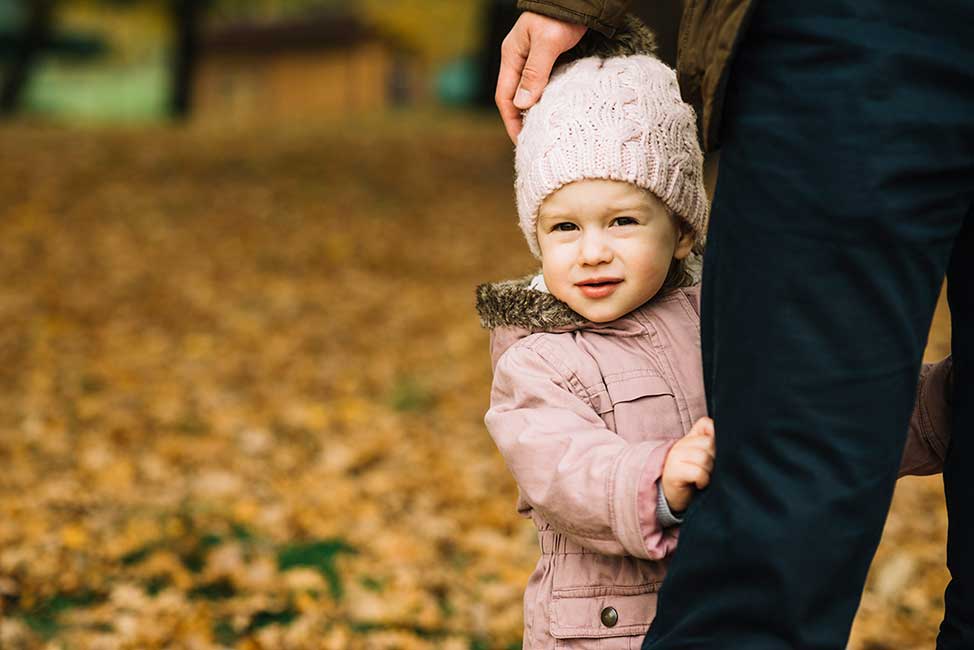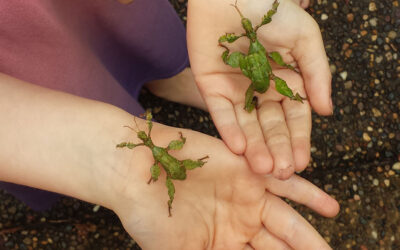Does your child cling to your legs for dear life, rather playing with other kids? You want them to be happy and get involved in activities, but instead you spend most time outside coaxing them to try. Yup, parenting a shy child can be filled with challenging times.
Childhood friendships are important – they can create feelings of belonging, comfort, companionship, and emotional wellbeing for children. On the flip side, lonely and isolated children are at risk of many problems, such as poor performance at school, depression and bullying.
Dr Robi Sonderegger, Director and Clinical Psychologist at Family Challenge Australia, says shyness is an experience that children can be predisposed to in their personality and biological make-up, as well as something they can learn from the people they associate with, the regularity of social experiences they have, and the environment in which they live.
“We all have different temperaments, personalities, and comfort zones,” Robi says.
“When shyness is fear-based and interferes with normal social functioning, it can be a problem. However, just because a child is not extroverted and as socially playful as other children does not suggest there is something wrong with them,” Robi adds.
In fact, shy children are often sensitive, caring little people who are more likely to listen to others. If shyness is accompanied by good self-esteem, these children are nice to be around. Let children be themselves and eventually they will find a friend with the same temperament.
“If a child is highly self-conscious of what others think of them, they are vulnerable to lower feelings of self worth,” Robi says.
“When children become less concerned with what others think of them and more concerned with making a valuable contribution to people or projects outside themselves, they tend to automatically experience better social interactions. Moreover, not being so self focused by learning to serve others teaches value. Value is the same as worth, and worth is the same as esteem,” Robi says.
Children make friends differently depending on their age and development. Preschoolers play alongside each other rather than with each other. Friends are children they see regularly and who share toys and play games with them. Friendships end if there is a fight or the friend moves away. For children of school age, friends are those who help them, and enjoy doing the same activities but can think differently to them. At this stage, children understand that friends share inner thoughts and feelings, and that friendships can survive a fight.

Here are some ideas to build self-esteem, communication skills, and social skills that will set the scene for friendship making.
Self-esteem in a shy child
- Start early. Spend lots of face-to-face time with your baby, especially in the first few months. He’ll love the attention and will enjoy making faces with you.
- Shy children often feel uncomfortable about the way they look so help them feel attractive and likeable. The more secure toddlers feel, the more social they will be.
- Help your kids identify talents and hobbies that make them feel special and that take advantage of your their strengths. Is your child athletic, artistic or musical? Find a group or class to build on these skills. If your child is very shy and unwilling to attend group activities, start with solitary activities like music lessons, then move on to share her interest with children her own age. She may get a confidence boost by sharing her skills with children who are a little younger than her at first.
- Notice what you like about people. When shy children overhear you criticising other people’s hair, clothes, or job, they think they will also be judged. Showing your children how to be respectful to others, despite any perceived shortcomings, teaches children that people don’t have to be perfect to be worthwhile.
- Be aware of labelling your child as “shy”. They may think something is wrong with them or use it as an excuse not to try new skills. Try using words like “reserved” or “private” instead, and add something positive like: “Taylor is a reserved when she first meets people, but you should see her play soccer with her team. Wow!”
Communication skills
- Practice smiling for a day. It is surprisingly infectious.
- Some children don’t talk very much because they don’t think what they have to say is important. When your child does talk to you, give them your full attention.
- Teach your children to use people’s names and ask questions that get other children to talk about themselves.
- Make a list of the kinds of things you would like your child to feel comfortable doing, for example, making phone calls to a friend, asking for help, or saying hello first, and make a point of doing these things yourself in front of your child.
- Role model confidence in your own communication.
Social skills
- Create opportunities for interaction. Toddlers can benefit from having peers around, so arrange to have friends over to play, but make sure you have plenty of toys for everyone. Your child may have difficulty sharing his things with others.
- Set up situations for your child to meet other children who have similar interests. Join a playgroup or class so he gets a chance to be with others.
- Make learning social skills a part of everyday life. From setting the table and the proper use of tableware to saying hello, and shaking hands and introducing family members to one another. Try giving each member of the family one compliment every day.
- Show children how you want them to behave. If you make a point of saying “please” and “thank you,” your child will learn from your example.
Remember too that being a good role model for friendship may be the best possible way to help your child make friends. Help your children understand what it takes to be a good friend.
However, if your shy child is not making progress, it may be time to consider getting some professional help.
“When a child starts missing out on fun activities, resists returning to school after holidays and weekends, and starts to become socially withdrawn, it may be that rather than shyness, the child is experiencing anxiety.
“Parents often think that children will just grow out of it, but the research strongly suggests otherwise. As soon as childhood anxiety starts impacting upon their daily functioning, its time to book in for a visit to a child psychologist.
“Emotional resilience skills are relatively easy and fast to learn when professionally guided,” Robi says.
Children struggling with non-verbal learning disabilities or Asperger’s Syndrome, which interferes with their ability to read social cues, can hide their conditions behind shyness. Professional help is also important in these cases.
You may also like…
Highly sensitive children: This is what you need to know
5 parenting quotes for raising an everyday hero
Anxiety in kids – know the signs


